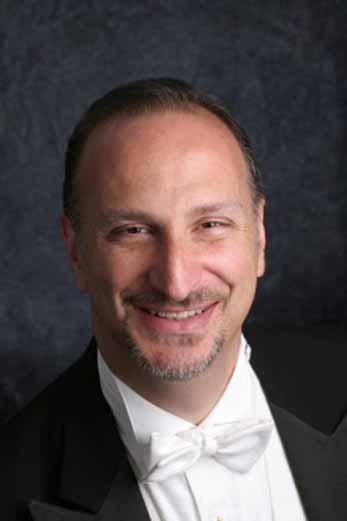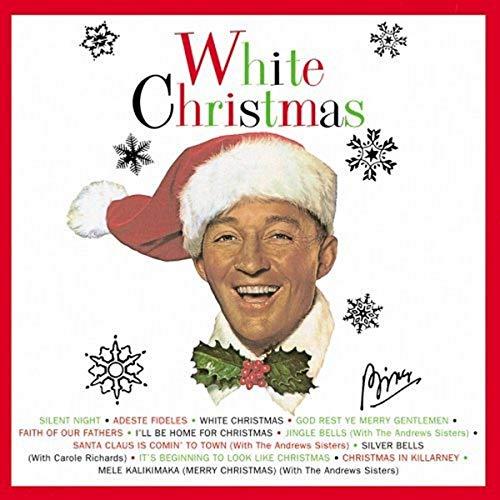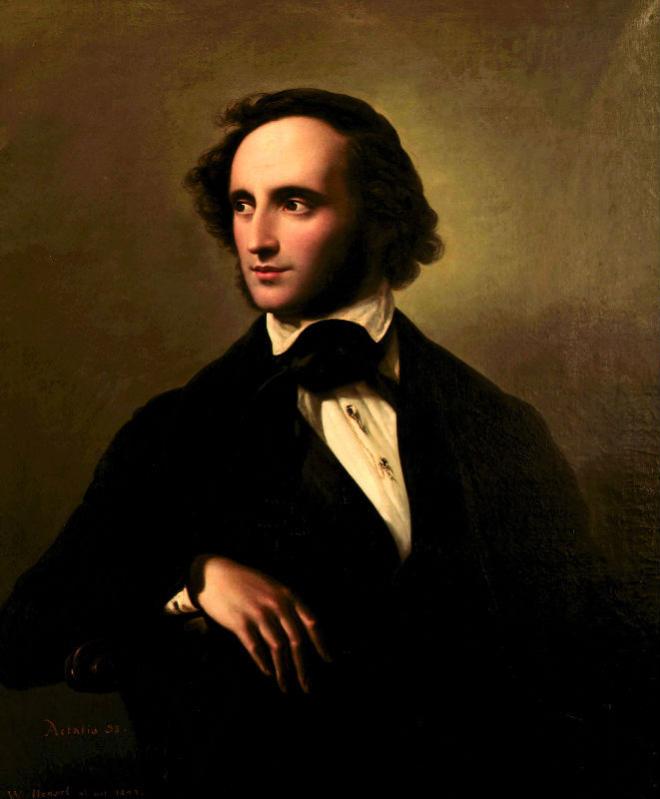Editor's Note: The concert mentioned in this interview is from 2022. In 2023, WETA PBS and WETA Metro are airing the documentary Dreaming of a Jewish Christmas. WETA PBS airtimes are December 23 at 10 PM and December 24 at 2 PM. WETA Metro airtime is December 24 at 2PM.
I had the pleasure of performing with the Washington Men’s Camerata for a recent holiday concert, “I’m Dreaming of a Jewish Christmas,” directed by Frank Albinder. I sat down with him afterwards to talk about the program.
Frank, this was such a fascinating concert, featuring the Christmas music of songwriters, lyricists, and arrangers who were all Jewish. How did this idea come about?
One of my singers recommended a documentary called “Dreaming of a Jewish Christmas” that delved into the history of secular Christmas songs written by Jews. We changed the title for our program a little so we wouldn’t get sued [chuckles].
In the film, a Jewish family goes out to the movies on Christmas, then out to a Chinese restaurant, where everyone in the restaurant sings and dances – the staff, waiters, cooks, patrons – and then there are cutaways to Jewish musicians being interviewed about the songs’ history and how it all came to be that Jews secularized and popularized Christmas music.
Intriguing! As you know, I’m a church organist, very much steeped in the sacred music side of things. I never gave much thought to the popular side, and what went into it. Is there other material out there on the topic?
As a Jew, I was aware that a lot of popular Christmas music was written by Jews but didn’t know the extent of it, or how it developed. After watching the film, I did more research, and there’s not an insubstantial amount about this phenomenon. I got this book called “A Kosher Christmas: ‘Tis the season to be Jewish” for more background. There’s also a book [“An Empire of Their Own: How the Jews Invented Hollywood”] and movie [“Hollywoodism: Jews, Movies, and the American Dream”] about how Jewish immigrants basically invented the Hollywood film industry, all part of how they tried to fit in and assimilate in America through popular culture.
Maybe being outside that Christian tradition, free from “the way it’s always been done,” they could be creative and move away from typical Christmas hymnody. What was the big piece that kicked things off?
“I’m Dreaming of a White Christmas” written by Irving Berlin 1941 for the movie “Holiday Inn.” He immediately referred to it as “the best song I ever wrote…hell, the best song anyone ever wrote.” It became an instant hit and Bing Crosby’s version is the largest selling single in the history of recorded music. The success of the song even spawned another movie altogether, “White Christmas.” And there you have it, the success of commercialism – America’s true religion.
Did anything lead up to this, or did it just happen overnight?
There were some popular songs written before this, but not about Christmas specifically. They were secular, mainly about the weather, “Winter Wonderland” for example.
Ironically, it was during a heatwave in L.A. when Robert Wells started jotting down cooling thoughts in order to try and cool himself down. His writing partner, Mel Tormé, fished them out of the trash, and forty minutes later, they had "The Christmas Song" ["Chestnuts Roasting on an Open Fire" or, as it was originally subtitled, "Merry Christmas to You"].
What other pieces were connected to Hollywood and the film industry?
“Have Yourself a Merry Little Christmas” was written for “Meet Me in St. Louis,” which Judy Garland made famous, though the lyrics had to be modified to be less sad for her to be able sing without crying. “Silver Bells” was written for “The Lemon Drop Kid” starring Bob Hope and Marylyn Maxwell.
And although it wasn’t written for a movie, it’s worth noting Johnny Marks’ “Rudolph the Red-Nosed Reindeer” was written based on a story by Robert May published as a giveaway pamphlet by Montgomery Ward. If you don’t know what that is, it’s like Sears…and if you don’t know what that is, it’s like Target. Just seedier. Marks also wrote “It’s a Holly Jolly Christmas” and “Rockin’ Around the Christmas Tree.”
Was there anything that jumped out at you, as you delved into this topic?
Almost all these composers, arrangers, and lyricists changed their Jewish names to fit in. Noel Regney, who co-wrote “Do you hear what I hear,” came by his stage name by spelling his first name and part of his last name backwards: Leon Schlienger.
“It’s the Most Wonderful Time of the Year” was written by Eddie Pola and George Wyle, who were actually Sidney Edward Pollacsek and Bernard Weissman. Wyle, side note, also wrote the theme song for “Gilligan’s Island.” Ralph Blane’s real last name was Hunsecker; he wrote “Have yourself a merry little Christmas”.” The lyricist for “Sleigh Ride,” Michael Hyman Pashelinsky, went by Mitchell Parish. Jacob Levinson of “Silver Bells” slightly modified his name to Jay Livingston," Julius Stein of “Let it Snow!” became Jule Styne…and it goes on.
As with many others in similar industries, it says a lot about society that they felt the need to alter their identities to succeed. Was there a piece you felt more affinity for as you learned more about it?
“Do you hear what I hear” was a song that used to irritate me; it was overdone, I was over it. But when I found out it was written as a plea for peace in response to the Cuban Missile Crisis, it really placed the song in a different light. I remember doing drop drills in nursery school in the early ‘60s, and looking back, I see just how terrified the country was of the real threat of nuclear annihilation.
Did you have a favorite piece in your program?
I included a piece by Felix Mendelssohn, who was of Jewish ancestry. It’s a movement from his “Gutenberg Cantata,” and the tune is what we all recognize today as “Hark the Herald Angels Sing.” But it was originally written to celebrate the 400th anniversary of the invention of printing and moveable type. The chorus hails “Gutenburg, der deutsche Mann! Gutenberg, der grosse Mann!” That just tickles me.
Thanks for sharing all this, I truly have a new appreciation for this music. One last question: how did it feel, as a Jew, to put on this program?
My grandparents were Orthodox Jews; I was raised Conservative and when I was growing up, I was jealous because I couldn’t participate in Christmas. I wanted a tree and decorations, but my mother wouldn’t let me have any, though a number of my friends’ families had white trees with blue ornaments they dubbed “Hanukkah bushes.” So now, I’ve gone overboard in the opposite direction in my love of all things relating to the more pagan side of Christmas, and that manifested itself in programming this concert. I have a giant tree and all the decorations; it’s not a religious Christmas; like the music, it's a secular Christmas. That way Jews and really, anyone, can have a kind of Christmas, too. My grandparents would definitely not approve!
Enjoy Julie's playlist of holiday favorites by Jewish composers!
PBS PASSPORT
Stream tens of thousands of hours of your PBS and local favorites with WETA+ and PBS Passport whenever and wherever you want. Catch up on a single episode or binge-watch full seasons before they air on TV.


